Greece Races To Shelter Thousands After Lesbos Migrant Camp Fire
Thousands of asylum seekers on the Greek island of Lesbos were camping on roadsides on Thursday after the country's largest camp burnt down, with officials racing to locate shelter and avert a health crisis.
Desperate families, many with young children, spent a second night in the open, many without tents or even basic bedding.
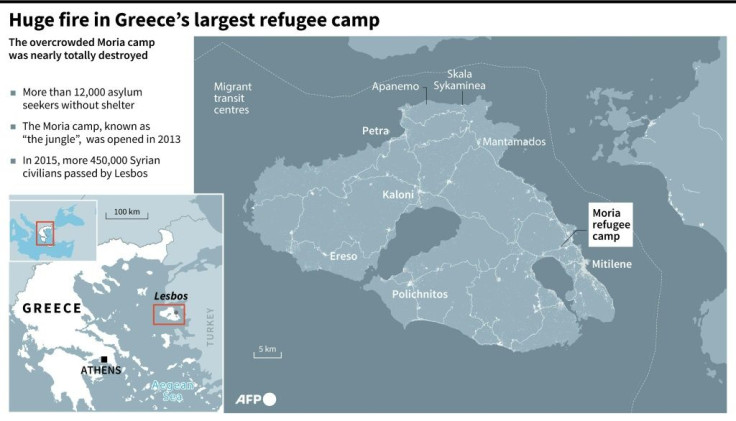
"We've lost everything, we were abandoned, without food, water or medicine," said Fatma Al-Hani, a Syrian woman who barely had time to grab her identity papers before the flames engulfed the camp.
Some of the bleary-eyed homeless had to trek to the nearest villages for water and other supplies, AFP TV footage showed.
The fire late on Tuesday at Moria camp, Greece's most notorious migrant facility, sent thousands fleeing for safety into surrounding olive groves.
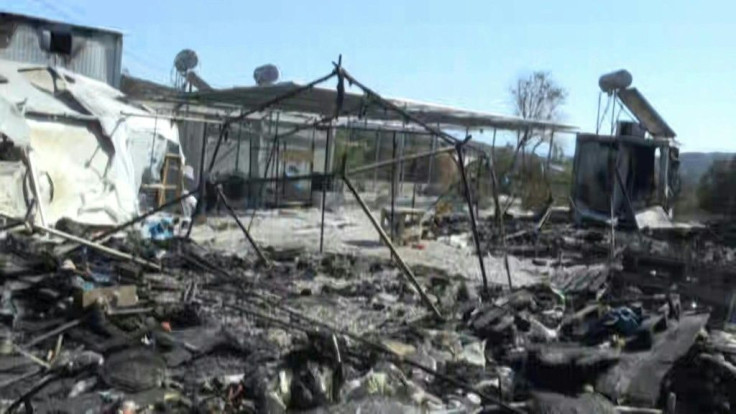
Gaelle Koukanee, a pregnant 21-year-old Congolese refugee, said the police had fired tear gas during the operation to extinguish the fire.
"We have children, old people, disabled among us. Why this lack of humanity," she asked, seeking shelter from the beating sun under an olive tree.
Greek officials, who have declared a four-month emergency on the island and flow in extra riot police, said officers were sent to protect firefighters from asylum seekers who threw stones at them
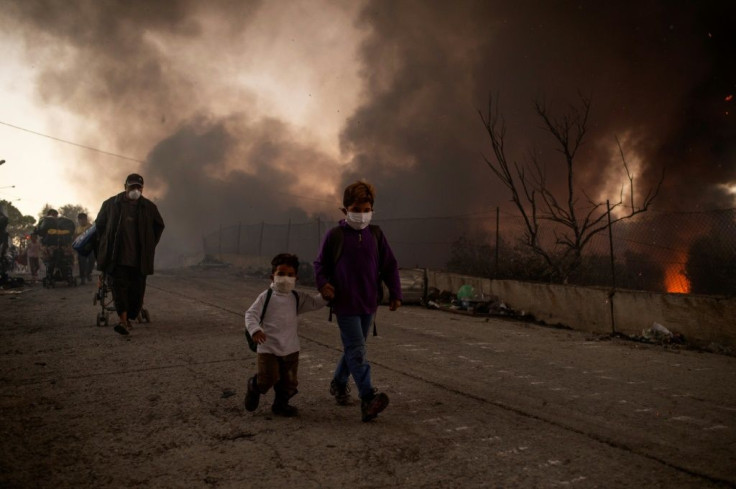
While nobody was seriously hurt, the blaze destroyed the official part of the camp, which housed 4,000 people, ministers said.
A second fire late on Wednesday destroyed most of the remaining camp where another 8,000 lived in tents and makeshift shacks around the perimeter, the migration ministry said Thursday.
The ministry said a ferry had been sent to accommodate hundreds of people ahead of the expected arrival of European Commission vice-president Margaritis Schinas to inspect conditions on the island.
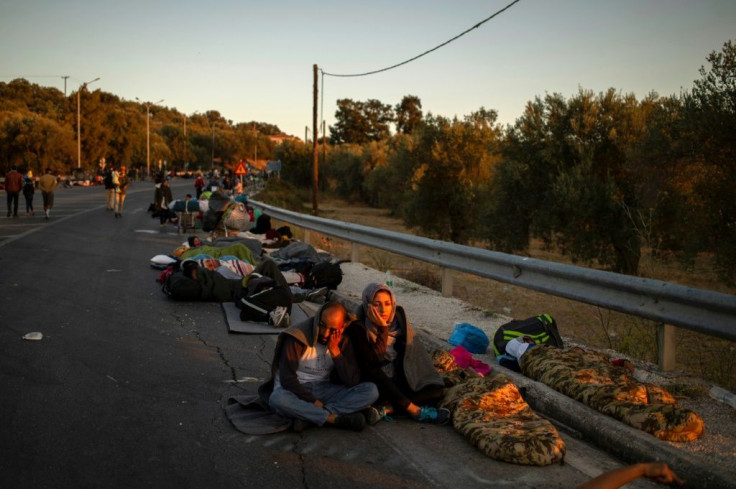
"Today all necessary actions will be taken to immediately shelter families and vulnerable persons to begin with," the ministry said.
Government spokesman Stelios Petsas said the administration food would be provided "in cooperation with humanitarian groups" at migrant gathering points.
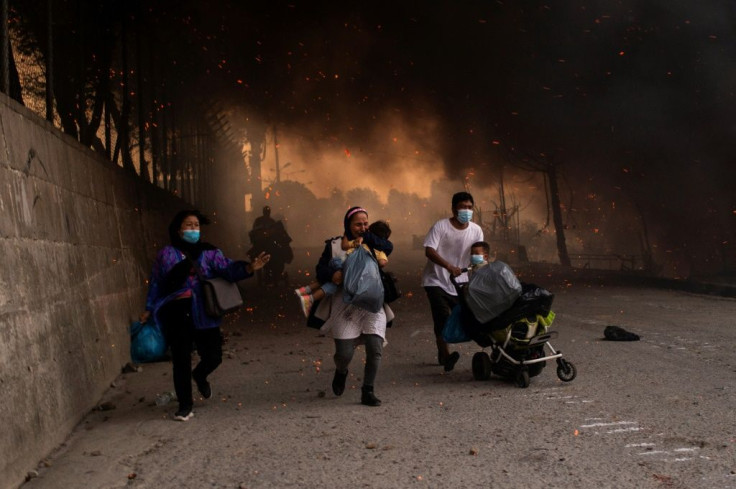
Two Greek navy vessels would provide additional sleeping space, the ministry said.
But plans to build new temporary camps have run into local resistance, junior migration minister Giorgos Koumoutsakos said.
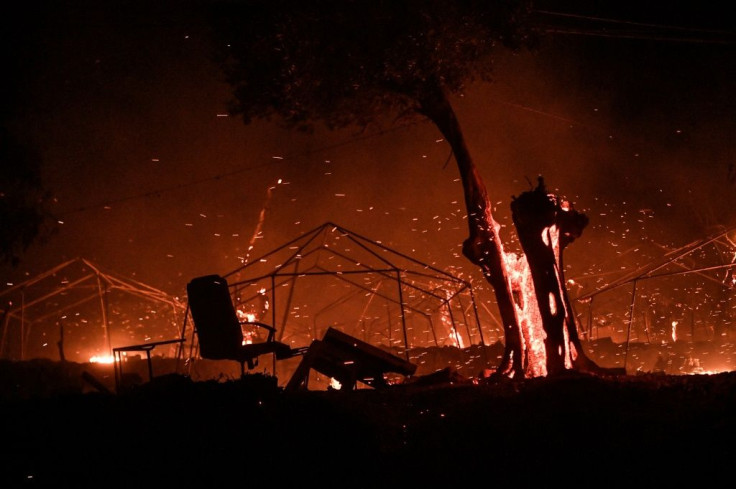
"We are facing difficulty from local authorities and local society (over where to) put tents to house these people," he told SKAI TV.
Earlier this year, a plan to build a new camp on Lesbos stalled after locals clashed with riot police to prevent the construction.
Greek President Katerina Sakellaropoulou on Thursday said the situation had to be addressed without "delays, responsibility-dodging, war cries".
"And mainly, Europe cannot turn a blind eye. The refugee and migration issue is primarily a European problem," she said in a statement.
The government said it had sent three flights to remove 406 unaccompanied minors from the island and rehouse them in "safe" facilities in northern Greece, adding that all had been tested for the virus.
Migration minister Notis Mitarachi on Wednesday said asylum seekers had started the fire because of quarantine measures imposed after 35 people at the camp tested positive for coronavirus.
Greece's public health authority EODY said eight of the 35 positive cases had been located and isolated along with a significant number of their close contacts.
Medical staff from the World Health Organization are expected in Lesbos on Thursday to begin tests on asylum seekers and locals, EODY chief Panagiotis Arkoumaneas told reporters on Wednesday.
European countries from Germany to Norway -- along with EU chiefs -- have responded with offers of help as calls intensify for urgent reform of the bloc's asylum system.
Since becoming one of the main gateways into Europe for migrants and asylum seekers in 2015, Greece has built dozens of detention centres around the country.
But with other European nations accepting only a small trickle of refugees, thousands remain trapped in the Greek camps in usually dismal health conditions.
"I haven't seen a doctor in weeks," said the Congolese refugee.
"We lacked toilets, showers and as women, we were afraid to walk at night. But now I'm even more worried about my future," she said.
Greece's conservative government has also toughened its asylum restrictions, slashing cash benefits and accommodation provisions to discourage further migration.
"I've had enough, I just want my baby to grow up in peace," she said, breaking down in tears.
© Copyright AFP 2024. All rights reserved.




















